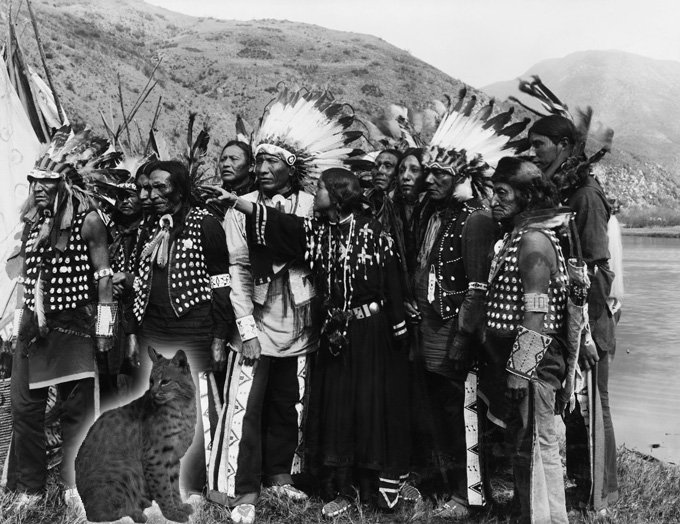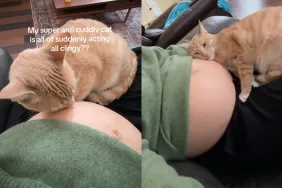(Photo Credit: Shutterstock)
We’ve heard that cats domesticated themselves about 10,000 years ago in Egypt. But did you know that a second domestication effort may have occurred a little closer to modern times? Recent studies have hinted that Native Americans may have tamed at least one bobcat.
Decorated Baby Bobcat
An ancient Native American burial site dating back 2,000 years contained a four- to seven-month old baby bobcat that had been decorated and buried like a human. The site was found at the Illinois Hopewell Burial Mounds north of St. Louis. Interestingly, the burial was originally found in the 1980s but the bobcat was mistakenly labeled as a dog. A research team from the University of Durham recently discovered the error.
The baby bobcat was wearing a necklace made of seashells and bone carved to look like bear teeth, according to the paper published in the Midcontinental Journal of Archaeology. The researchers proposed that the bobcat’s burial indicated there may have been a complex relationship between bobcats and ancient Americans, including “possible taming.”
Someone Bent the Rules to Get the Cat Buried with Humans
AAAS reported that the burial mound contained 22 people buried in a circle, with an infant in the center and the small bobcat also buried in the ring. The bobcat’s placement is highly unusual, suggesting it was important to the people who buried it. Angela Perri, who was part of the team that made the discovery, said it was buried with its paws placed together, in a respectful position.
Kenneth Farnsworth, an expert in the Hopewell culture, told AAAS that somebody had to bend the rules to get the animal buried in that location. Perri said the necklace very likely may have been a collar.
Bobcats Can Be Tamed
The discovery doesn’t suggest that the entire bobcat species was once domesticated, but it does strongly hint that at least one cat was tamed thousands of years ago. Even today, bobcats are known to be potentially tamable, look a lot like cats, and are just twice the size of a housecat. This discovery could hint at a more complex relationship between the ancient humans and cats, branching out at different points in time and even in different continents across the world.









